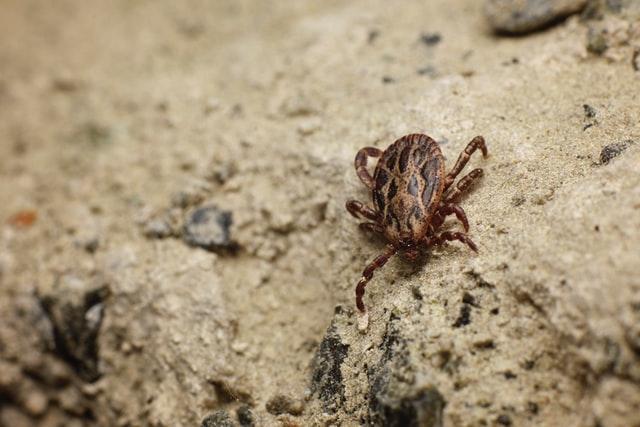Ticks are troublesome creatures for many reasons. Their bites affect humans and animals, sometimes causing serious illness. Worse, tick bites usually don’t hurt, and symptoms tend to appear days after the initial infection. The most common ticks in Iowa are deer ticks, dog ticks and Lone Star ticks. These bugs cause diseases like Lyme disease, Rocky Mountain Spotted Fever, anaplasmosis and ehrlichiosis. Here is more information about those diseases.
Lyme Disease
Lyme disease is spread by a deer tick bite. In most cases, it’s easy to cure. Symptoms include fever, headache, fatigue, joint pain and a bulls-eye shaped rash. After two to four weeks of antibiotics, the majority of Lyme disease cases clear up. However, some people develop chronic conditions like neurologic Lyme disease in the brain, Lyme carditis in the heart and Lyme arthritis in the joints. These usually appear in untreated cases, but post treatment Lyme disease does happen. Because of this, it’s important to get treated as soon as possible after noticing a deer tick bite.
Rocky Mountain Spotted Fever
The American dog tick spreads a disease called Rocky Mountain Spotted Fever. This causes symptoms like fever, headache, abdominal pain and muscle aches. Within 2-4 days, most people develop a rash that appears as red splotches or pinpoint dots. If left untreated, this disease can result in severe consequences like amputation or even death. When treated with antibiotics, however, most patients fully recover with no long-term effects.
Anaplasmosis and Ehrlichiosis
The Lone Star tick and deer tick spread these two diseases. While the diseases differ slightly, the symptoms and treatment methods are exactly the same. Four different bacteria cause these diseases, which cause symptoms like headache, fatigue and confusion. Sometimes, a rash will appear, and this is more common in children. The best treatment for either of these is a round of doxycycline antibiotics. These illnesses can be severe if untreated or if you’re older or have a weakened immune system.
Preventing Tick Borne Illness
As with any illness, prevention is the best medicine for tick borne diseases. Use tick prevention products for pets you bring outdoors, especially dogs. If your pet spends a lot of time outdoors, consider regularly brushing them with a flea and tick comb. Dogs don’t tend to show signs of infection until 7-21 days after being bitten. Keep an eye on them for lethargy, swollen lymph nodes, or out-of-the-blue behaviors. Maintain your yard, including plants, furniture and fencing, to reduce the chance of tick migration. Pesticides can help, but you’ll want to make sure they’re safe for your pets and family.
After spending time outside, check yourself, family members and pets for ticks. If you find one, carefully remove it right away using fine tweezers, then dispose of it immediately in a sealed container. Then, wash your clothes and tumble dry them on high heat, and take a warm shower. None of these methods guarantee total tick protection, but they will reduce the likelihood of tick borne disease.
If ticks find their way into your yard, Pro-Staff can help. Our Des Moines pest control technicians will remove pests so you can enjoy the outdoors once again. Give us a call at 515-279-7378 or contact us online.

